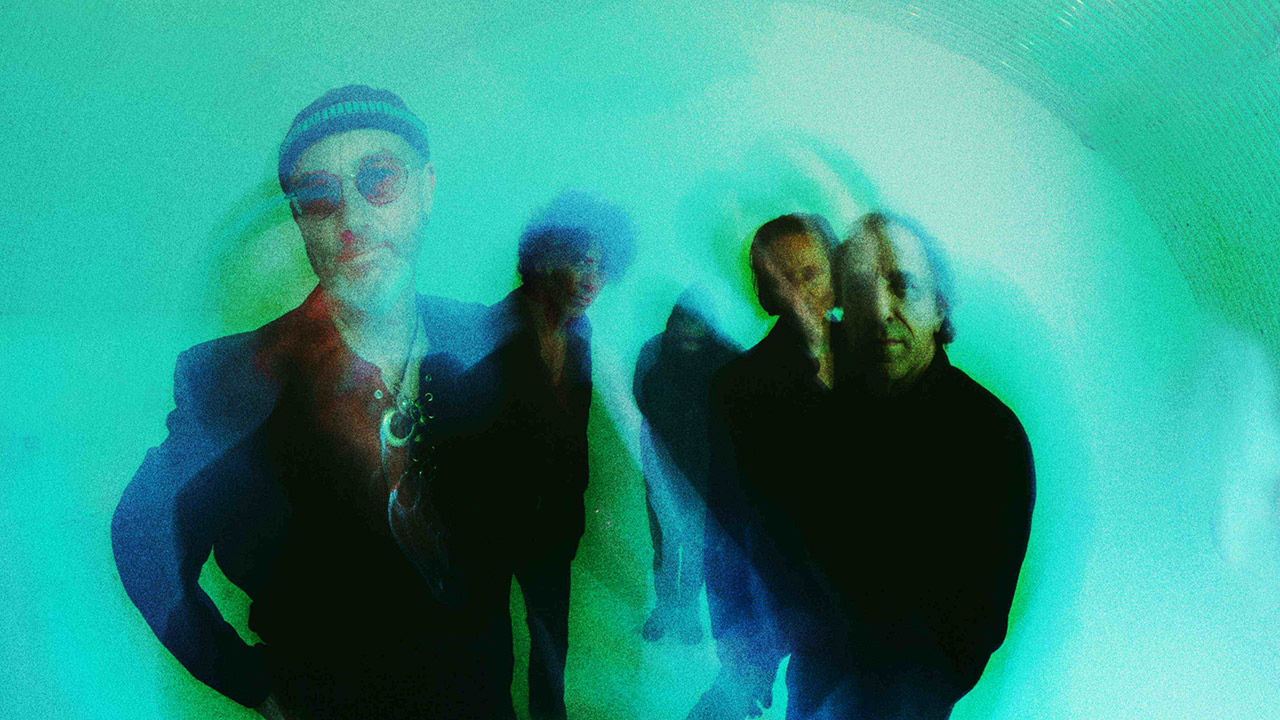“It’s a heavier album than I’ve done before..."Steve Hackett on Surrender Of Silence
Steve Hackett discusses the making of his 27th studio album Surrender Of Silence
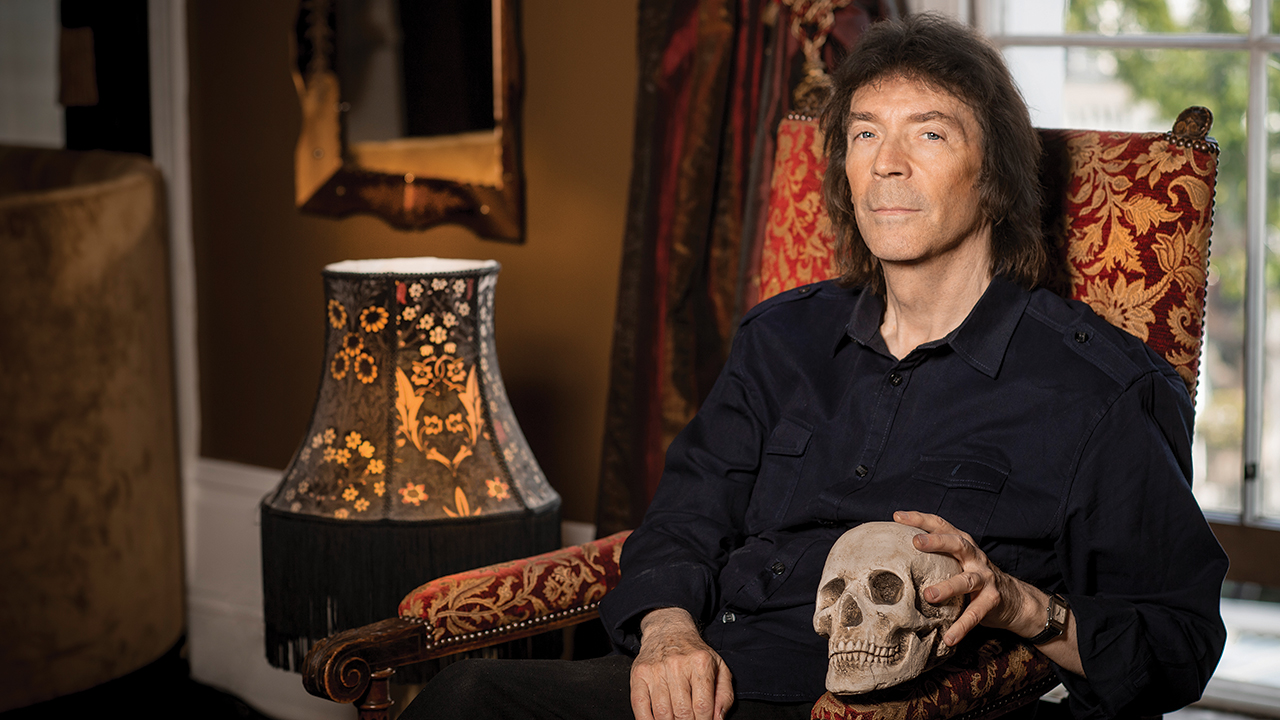
There are countless pitfalls to being a prolific recording and touring artist. Immerse yourself in what some might perceive as too many projects and allegations of standard-dipping will be unceremoniously fired at you. For Steve Hackett, the past 12 months have – even by his standards – been a feverish period. An autobiography appeared, alongside a live album and an acoustic album. A few months later, he’s back with Surrender Of Silence, a full electric recording, which has raised eyebrows in certain quarters at the speed of release. There have been a few unkind suggestions that he may be succumbing to quantity over quality. Flawed as that argument may be, Hackett reveals it’s a debate he’s aware of.
“There hasn’t been the distraction of touring, so I have upped the ante,” he explains. “But I don’t think that there’s been a loss of passion. I just like doing things that are very different from each other. It’s been the most productive period I’ve ever experienced. Once the acoustic album [Under A Mediterranean Sky] was done, I already had one track recorded, Scorched Earth, for a potential album. That had an ecological basis and it was wonderful to then work again with the idea of travelling and taking people places virtually rather than literally. So, there are Russian, African and [East Asian] influences, as well as all the western stuff that we are more familiar with. I like to think that the album is extremely varied and has a travelogue aspect to it.”
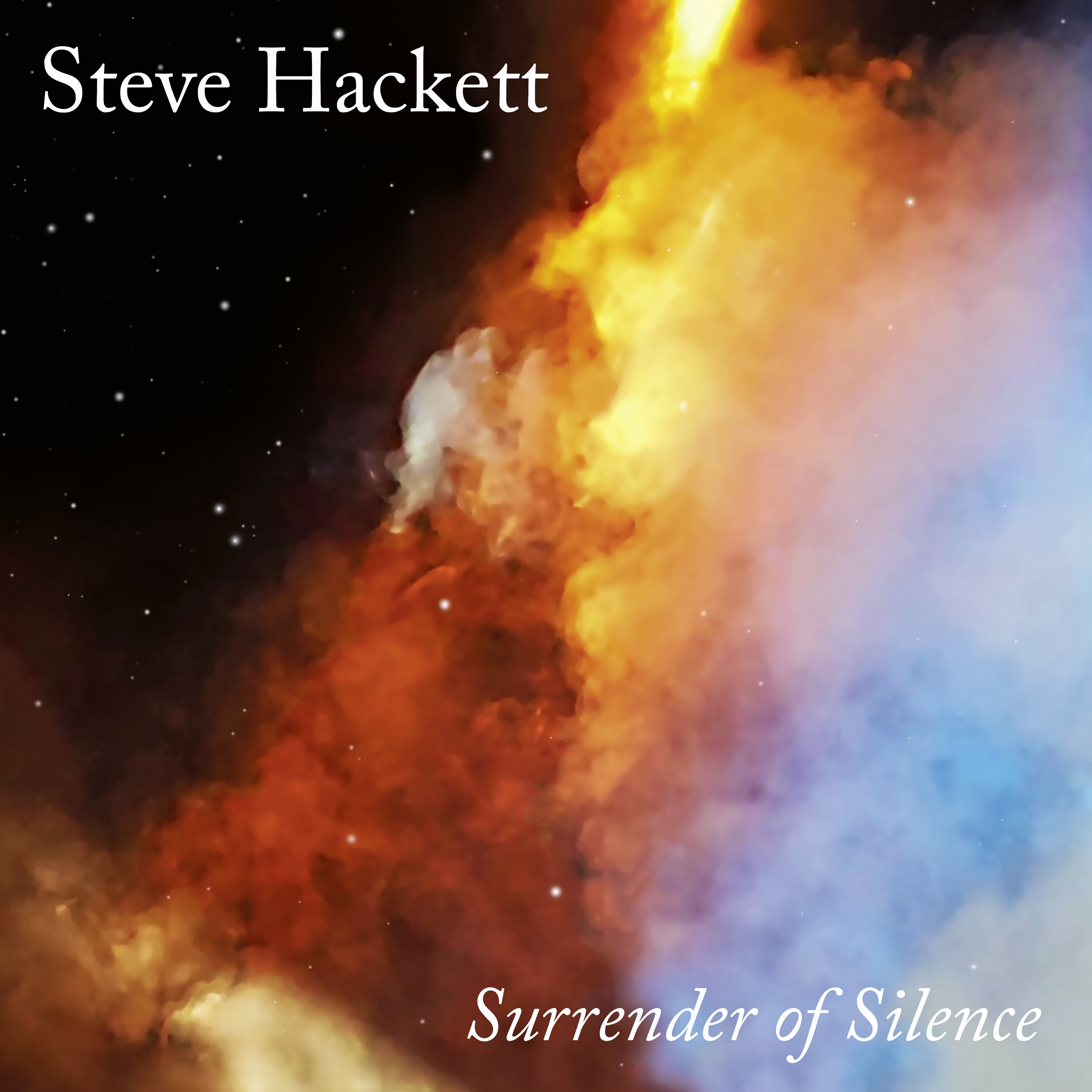
Aside from those travel inspirations, Surrender Of Silence is also a more aggressive album, with heavy guitar propelling tracks such as Relaxing Music For Sharks (Featuring Feeding Frenzy). It was, as Hackett puts it, a way of “blowing away the lockdown cobwebs”. Such furious guitar could indicate an internal anger that the guitarist needed to exhale, but this approach was in fact driven more by his choice of instruments.
“It’s a heavier album than I’ve done before, as I’ve allowed for anger and speed,” he considers. “I realised that the music you make is often driven by the toys with which you play. I got my old 1957 Gibson out and a friend of mine lent me a guitar designed by Brian May. They all do different things. The strings sing through your fingers and very often at home, I don’t even have the guitar plugged in, but I will just pick it up just to get the feel of it, play a few notes and put it down between the ads on TV. It’s a strange thing to say at my time at life, but I feel as though I am playing with it more and I’m being less careful. I find it absolutely wonderful when all these separate ideas one has had for improvisation actually all join up. I don’t think to be a great guitar player that you have to be virtuosic all the time. That can get boring and wearing. Sometimes the guitar player has to take a step back and say, ‘I don’t want to demonstrate all my wares at once.’ Sometimes you just want to cruise and romance it. Other times you want to slash and burn and give it a good thrashing. Let it catch and see where it takes you. Guitars are remarkably adaptable.”
Hackett is also eager to emphasise that he considers each of his albums to be fresh, innovative recordings, stating an awareness of attempting to constantly ensure his music does not become repetitive.
“I get appalled at the formulaic approach that most people seem to allow themselves to slip into,” he sighs with unexpected frankness. “Isn’t it nice to take the character actor’s approach, allow yourself to tell a different story and the music to wear different clothes? I like to think that it can still be surprising. So much of the music I’ve done has been about contrasts. I always felt that from Please Don’t Touch, which I released just after Genesis, that you could include ideas that sounded like vastly different bands. I remember Tony Stratton-Smith [head of Charisma Records] saying to me at the time that he thought it was the album’s strength and weakness – the fact that I was reinventing myself with each track. But somehow, I wasn’t to be deterred as I didn’t want to do music that was merely radio friendly. I don’t want to spend my life auditioning for The Six O’Clock Show. That’s not what it’s all about for me.”
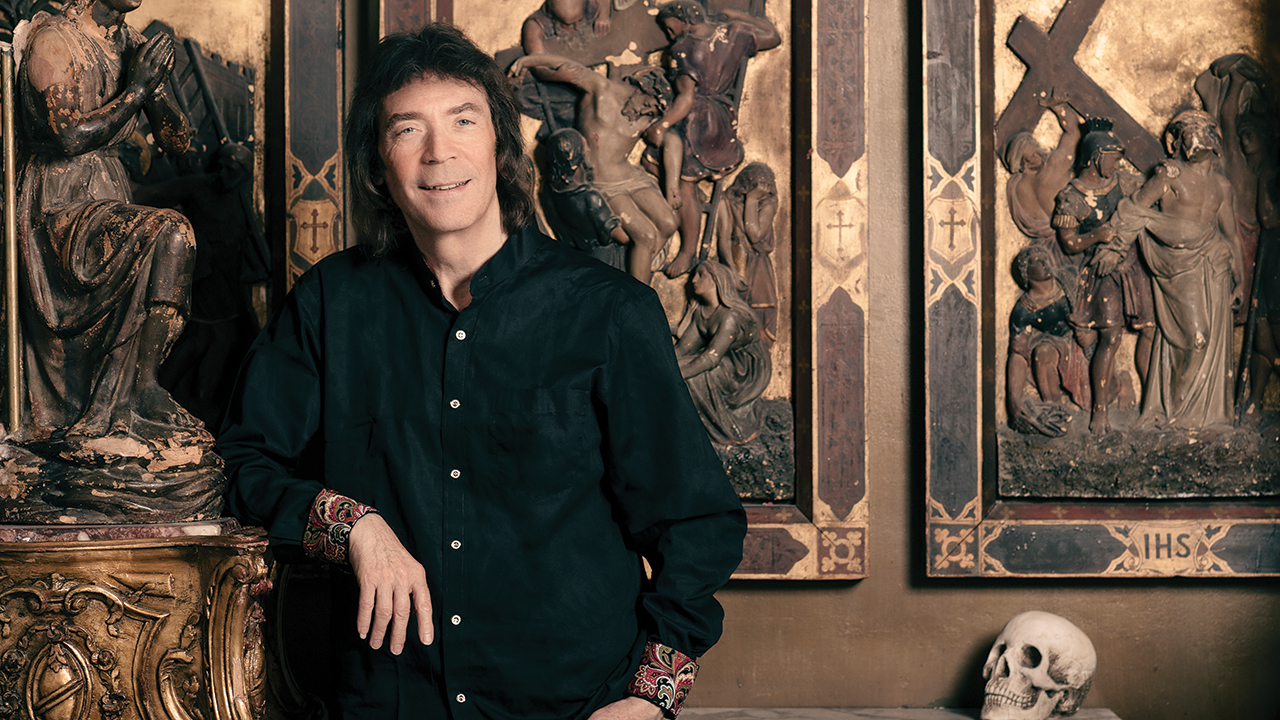
Nowhere is Hackett’s desire to challenge himself and the listener more evident than with Wingbeats. Fusing his core guitar sound with African-inspired world music, perhaps evocative of his former Genesis bandmate Peter Gabriel, has caused a rare division of his fanbase. Musicians are always faced with that familiar, unsolvable dilemma – repeat yourself and criticism for being predictable will follow. Alter what is perceived as your genre of choice and there will be accusations of disrespecting your fanbase.
Sign up below to get the latest from Prog, plus exclusive special offers, direct to your inbox!
“Well, there’s always going to be that,” says Hackett with a sense of acquiescence. “You can gain some and you can lose some. That particular song was written after a visit to Ethiopia and I was struck by the beauty of the place. The response to it has been extraordinary. I think that brave music is bound to divide people. If you do a brave song, you can’t expect everyone is going to get it. Music is always having to justify itself and it isn’t going to sit still. The hunger for it is never going to go away. I don’t aim to please my core audience – I love them, but at the same time I want to go: ‘Have you thought of this? You might like it!’ I remember a time, during the early days of Genesis, audiences would boo and walk out during songs which, in time, were regarded as classics. Many things can be met with a stony silence and you have to allow a certain amount of time for people to absorb it. Music becomes more powerful and sweeter as you re-encounter it, like an old friend.”
In the instantaneous, disposable society of today, that space for fans to absorb and fully nurture material is often absent. Witness the scathing comments which appeared shortly after the release of the similarly gallant, and occasionally awkward, accompanying video for Wingbeats appeared online.
“Most of what we had with our own social media was full of praise for it,” he reasons. “I think that with YouTube, you open yourself up. For all artists, life is the coconut shy with yourself as the coconut. A certain number of balls are going to hit you. But if you’ve got your helmet on, as a long-term performer, you’re going to go, ‘Well, so what?’”
Surrender Of Silence remains an absorbing and spacious recording that’s aided by the musicians he has enrolled for the album. Indeed, over his last 43 years as a solo artist, Hackett has consistently worked with some of the finest talents within the progressive and rock genres.
“Luckily, I’m currently working with some fantastic musicians,” he effuses, before allowing himself a wistful moment to consider past band members. “I’ve worked with so many people. With the late great John Wetton; the late great Chris Squire; and John Acock, who engineered those early albums of mine and who has passed on now. But their spirit is still felt very strongly. I find myself talking to them, asking, ‘Would you have liked this, John and Chris?’ Wondering what would they have done. Chris Squire’s wife, Scotland Squire, once said to me that when Chris liked the music, he cried. He loved music with a passion. John Wetton and I were always threatening to do a band together, but it never quite worked out in this world. Somehow, there is that pull, that ache, to see him and those guys again, because obviously their contribution to music is eternal.”
Given Hackett’s avowed determination to explore and incorporate other areas of music, there would appear to be a wealth of styles that could be weaved into his characteristic sound. So are there any particular genres or ideas that Hackett remains keen to visit?
“Well, there are a few things that I tend to get talked out of,” he reveals with a laugh. “That tends to be end-of-the-pier humour. That very British mixture of fish and chips, cheeky chappie humour, beer and skittles on a sunny day. I rather like that. There’s an aspect of the ghost train that’s never far away from my thoughts and we all like to have our cage rattled occasionally. We were back on a pier today and I couldn’t help recording what was going on, the sound of the surf, seagulls, the whole thing. Even if it’s five seconds of the British way of life. It’s not all world music for me. I’m still a Brit, and there’s a certain amount of me that wants to celebrate that.”
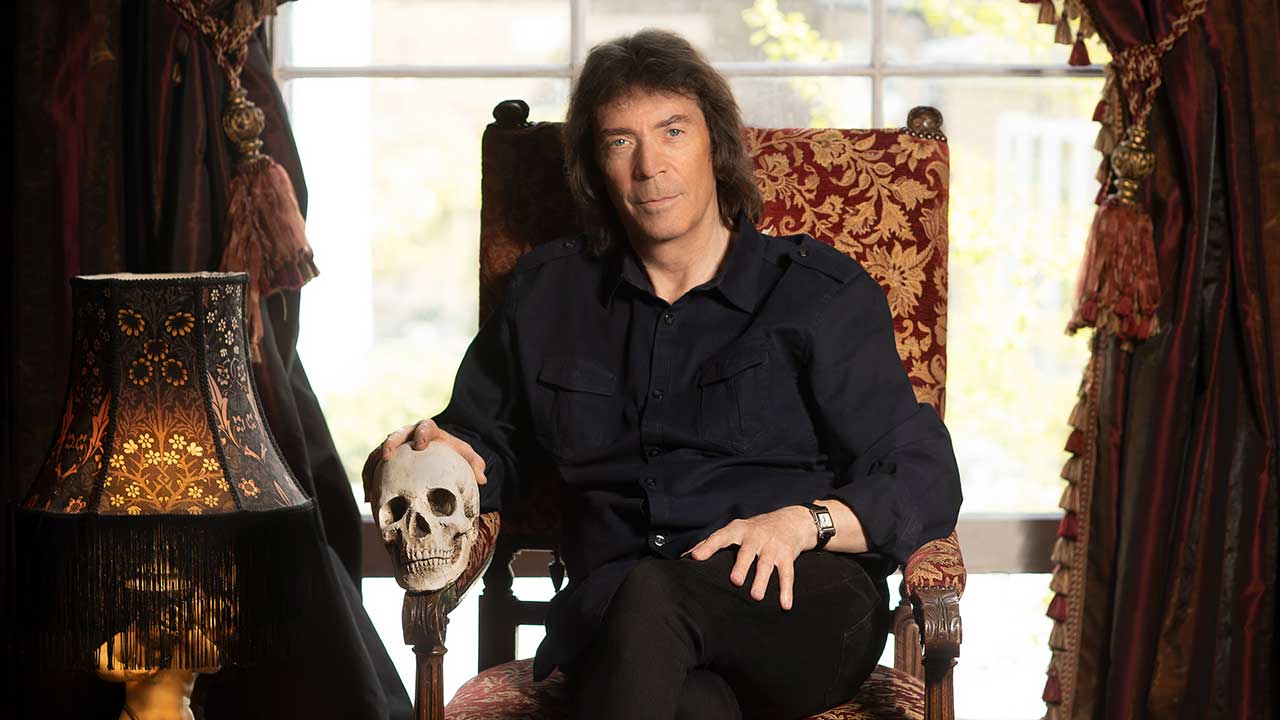
As for the future, Hackett is excited when discussing his upcoming Seconds Out + More Tour. His last performance was in early 2020 and 18 months away from the stage has enhanced his desire to return. The guitarist is also already recording music, which will become part of the next studio project. It seems that ‘retirement’ is a rather dirty word.
“We’re doing Seconds Out and I’m looking forward to it tremendously,” he explains. “Why should sport have all the fun? I can’t wait to get back on the road and in the meantime, I’m always recording. My attitude is that the best thing you’ve ever done is the next one. It’s always the next one because it’s the thrill of the chase and pursuit. To stretch yourself is important. To be able to do things that you couldn’t do yesterday and let your passion lead you. I’m going to sound like Batman here, but you’re never going to reach perfection but the pursuit of excellence is everything. So I’m still recording and I don’t stop. I don’t believe in retirement and that is never going to happen. They would have to lock me up and throw away the key. Maybe one day they will, but so far, I have been allowed to get away with it. It’s been great and it really has been a wonderful life…”
This article originally appeared in issue 123 of Prog Magazine.
